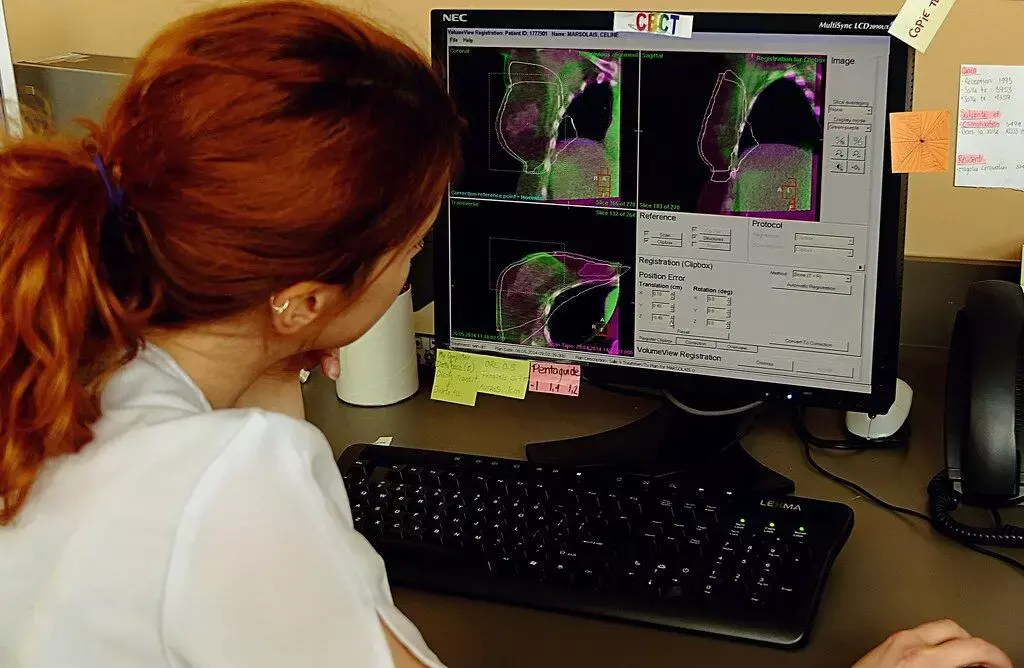- Home
- Medical news & Guidelines
- Anesthesiology
- Cardiology and CTVS
- Critical Care
- Dentistry
- Dermatology
- Diabetes and Endocrinology
- ENT
- Gastroenterology
- Medicine
- Nephrology
- Neurology
- Obstretics-Gynaecology
- Oncology
- Ophthalmology
- Orthopaedics
- Pediatrics-Neonatology
- Psychiatry
- Pulmonology
- Radiology
- Surgery
- Urology
- Laboratory Medicine
- Diet
- Nursing
- Paramedical
- Physiotherapy
- Health news
- Fact Check
- Bone Health Fact Check
- Brain Health Fact Check
- Cancer Related Fact Check
- Child Care Fact Check
- Dental and oral health fact check
- Diabetes and metabolic health fact check
- Diet and Nutrition Fact Check
- Eye and ENT Care Fact Check
- Fitness fact check
- Gut health fact check
- Heart health fact check
- Kidney health fact check
- Medical education fact check
- Men's health fact check
- Respiratory fact check
- Skin and hair care fact check
- Vaccine and Immunization fact check
- Women's health fact check
- AYUSH
- State News
- Andaman and Nicobar Islands
- Andhra Pradesh
- Arunachal Pradesh
- Assam
- Bihar
- Chandigarh
- Chattisgarh
- Dadra and Nagar Haveli
- Daman and Diu
- Delhi
- Goa
- Gujarat
- Haryana
- Himachal Pradesh
- Jammu & Kashmir
- Jharkhand
- Karnataka
- Kerala
- Ladakh
- Lakshadweep
- Madhya Pradesh
- Maharashtra
- Manipur
- Meghalaya
- Mizoram
- Nagaland
- Odisha
- Puducherry
- Punjab
- Rajasthan
- Sikkim
- Tamil Nadu
- Telangana
- Tripura
- Uttar Pradesh
- Uttrakhand
- West Bengal
- Medical Education
- Industry
CECT images useful in predicting axillary lymph node metastasis in breast cancer: Study

Contrast-enhanced computed tomography (CECT) images are beneficial in predicting the axillary lymph node metastasis in breast cancer patients suggests a study published in the Computers in Biology and Medicine.
When doctors use contrast-enhanced computed tomography (CECT) images to predict the metastasis of axillary lymph nodes (ALN) for breast cancer patients, the prediction performance could be degraded by subjective factors such as experience, psychological factors, and degree of fatigue.
Contrast CT, Contrast Enhanced Computed Tomography or CECT is X-ray computed tomography (CT) using radiocontrast. Generally, radiocontrast for X-ray CT are iodine-based types. This enables us to highlight structures such as blood vessels that otherwise would be difficult to differentiate from their surroundings.
A study was conducted by a group of researchers from China to exploit efficient deep learning schemes to predict the metastasis of ALN automatically via CECT images. They tried to compare different traditional machine learning algorithms and convolutional neural network structures.
The researchers carefully designed a new construction called deformable sampling module (DSM) as a plug-and-play sampling module in the proposed deformable attention VGG19 (DA-VGG19). They used a dataset of 800 samples labeled from 800 CECT images of 401 breast cancer patients retrospectively enrolled in the last three years were adopted to train, validate, and test the deep convolutional neural network models. By comparing the accuracy, positive predictive value, negative predictive value, sensitivity, and specificity indices, the performance of the proposed model is analyzed in detail.
The results of the study are as follows:
The best-performing DA-VGG19 model achieved an accuracy of 0.9088, which is higher than that of other classification neural networks.
Thus, the researchers concluded that through this first of its kind research to predict ALN by CECT dataset via deep learning. as such, the proposed intelligent diagnosis algorithm can provide doctors with daily diagnostic assistance and advice and reduce the workload of doctors.
Reference:
A study titled, "Axillary lymph node metastasis prediction by contrast-enhanced computed tomography images for breast cancer patients based on deep learning" by Liu Z et. al published in the Computers in Biology and Medicine.
https://doi.org/10.1016/j.compbiomed.2021.104715
Dr. Shravani Dali has completed her BDS from Pravara institute of medical sciences, loni. Following which she extensively worked in the healthcare sector for 2+ years. She has been actively involved in writing blogs in field of health and wellness. Currently she is pursuing her Masters of public health-health administration from Tata institute of social sciences. She can be contacted at editorial@medicaldialogues.in.
Dr Kamal Kant Kohli-MBBS, DTCD- a chest specialist with more than 30 years of practice and a flair for writing clinical articles, Dr Kamal Kant Kohli joined Medical Dialogues as a Chief Editor of Medical News. Besides writing articles, as an editor, he proofreads and verifies all the medical content published on Medical Dialogues including those coming from journals, studies,medical conferences,guidelines etc. Email: drkohli@medicaldialogues.in. Contact no. 011-43720751


